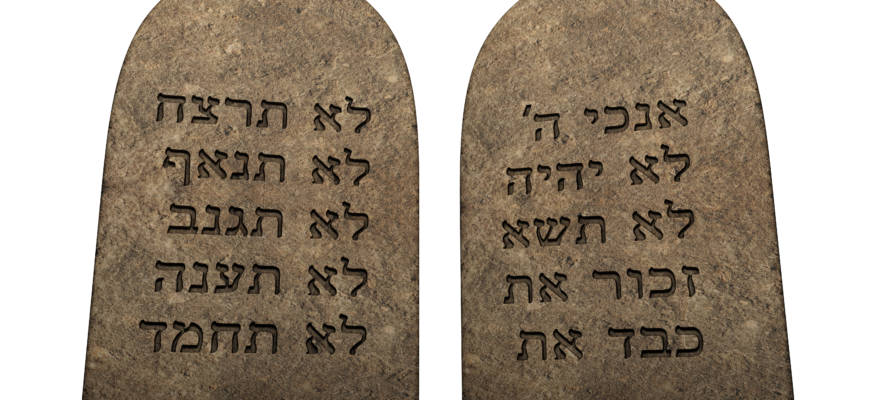When it comes to observing the Torah, there is no ‘picking and choosing’ commandments–you must fully commitment!
By Rabbi Ari Enkin, Rabbinic Director, United with Israel
This week’s Torah portion is “Mishpatim” (Exodus 21:1 – 24:18) and with over 50 different commandments, it contains the bulk of Judaism’s civil and monetary laws. The reading ends with a special animal sacrifice which essentially concludes the revelation-at-Sinai festivities that we read about in last week’s Torah portion.
We are told that Moses divided the blood of the sacrifice into two. One half of the blood was put in a number of bowls and the other half was sprinkled on the altar, as was common with animal sacrifices.
The commentators take issue with this “blood dividing ceremony” and claim that it was not actually Moses who divided the blood, but rather, it was an angel that did so. It is explained that it is simply impossible for a human being to divide every last drop of blood exactly into two, so God sent an angel to do it.
However, the question is asked: Why was it so vital that the blood be divided exactly in half? What would be the big deal if one of the portions had a few drops of blood more or a few drops less?
It is taught that the division of the blood into two equal portions represented the two types of mitzvot in the Torah: mitzvot between man and God and mitzvot between man and man.
Indeed, the Ten Commandments, written on two tablets, symbolized this exact same idea.
The five commandments relevant to the relationship between man and God were on the first tablet, while the five commandments relevant to the relationship between man and man were on the second tablet.
So there were two tablets and two portions of blood, each representing the two different types of mitzvot we must fulfill.
This is why the portions of blood had to be perfectly equal. With the “closing ceremonies” of the Sinai experience, we had to reaffirm our commitment to keeping both types of mitzvot, not just one or the other.
Both categories of mitzvot are equally important. One who focuses on his relationship with God at the expense of his relationship with fellow man is not truly Torah observant. So too, one who focuses exclusively on his relationship with his fellow man and ignores his obligations to God is not observant either.
It is also noted that the word the Torah uses for “tablets” when referring to the two tablets of the Ten Commandments is actually the singular form of the word. This too reminds us that both tablets, both sides of the Ten Commandments, are one.
The Torah is a package deal. Being a complete Jew means endeavoring to fulfill all the mitzvot equally, between man and man, between man and God, the easy mitzvot, and the hard mitzvot. There is no such thing as keeping half the Torah, there is no such thing as picking and choosing.
Being Jewish means a complete loyalty to the Torah to the best of your ability. We all make mistakes, but we must always work on making ourselves better and more committed to the Torah!
For more insights by Rabbi Enkin on this week’s Torah reading, click on the links below.
https://unitedwithisrael.org/living-torah-to-be-a-better-spouse-give-the-shirt-off-your-back/
https://unitedwithisrael.org/living-torah-not-all-bribery-involves-money/
https://unitedwithisrael.org/living-torah-if-you-hurt-an-orphan-or-a-widow-i-will-hear-their-cries/
https://unitedwithisrael.org/living-torah-the-youth-are-our-future/
https://unitedwithisrael.org/living-torah-no-flaw-in-jewish-law/
